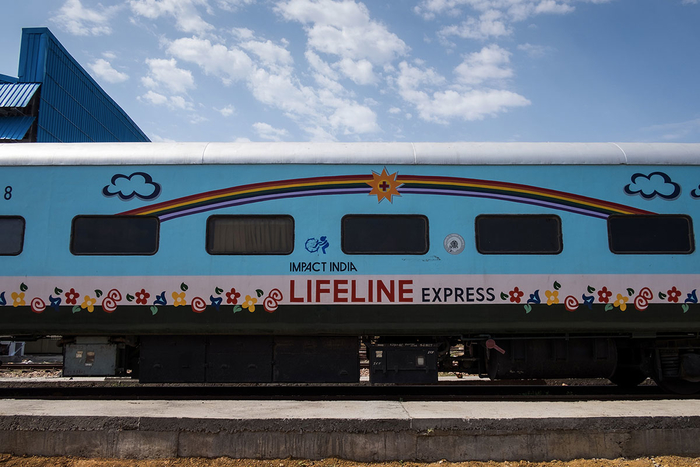
With the distinction of being the world’s first hospital on a train, the Lifeline Express(LLE) started off on July 16, 1991. Fifteen years later, it’s surging ahead in full blast. Since it’s maiden trip from the Victoria Terminus(now Chhatrapati Shivaji Terminus) in Mumbai, many additions have been made to the list of services-even major surgeries are being contemplated to be included.
From modest beginnings to the far reaches of India
The idea of taking the hospital to the people without proper access to medical care, maybe simple is nonetheless profound in the Indian context where rural India is severely under-served. The idea was proposed by a Mumbai based NGO- The Impact India Foundation(IIF) to the Ministry of Railways. The two signed an MoU which entailed that a three-coach train will be provided for the purpose by the Indian Railways(IR). It will also be involved in maintaining the same as well as providing water and electricity. The onus was put on the NGO to operate the medical services.
Since its wheels first rolled on the tracks, regular medical projects have been conducted by the LLE at various parts of the country. Each camp will last some 20 to 35 days and involves not just treating patients but also conducting training and awareness programs for the rural population and native doctors.
At a recent press conference, the IIF Chairman, R.C.Sarin spoke about how when the train arrives for a camp, literally hundreds would turn up with hope. One challenge that lies ahead for the LLE, as Sarin said is extending medical services. For doing major surgeries, blood banks would be required, he said. He added that hundreds are the villagers who clamor for help.
But blood banks are not all that the train is going to need. Post-operative facilities will also be required. Due to constraints in such facilities, the surgeries are now limited to cataract and clubfoot.
The LLE is going to get two new coaches this year. These will be for the additional services in cancer detection and family planning.
Though the beginnings were modest for the train, it possesses state-of-the-art-facilities now. Corporates, individuals and doctors have all chipped in in their own ways to this end.
A doctor’s account
A Mumbai based paediatric orthopaedic surgeon, Dr.Taral Nagda has been volunteering his services on the train for about 16 years . What he said to the newspaper, The Hindu gives insights into the functioning of the train.
He says how except for the support staff, nothing is permanent on the train. To exemplify how lives are being changed thanks to the train, he spoke about a girl he treated once. When he treated her as a child, she had bilateral club foot deformity. After he operated on her, it was solved. Now, years later, she goes to college and has chosen her own partner. The doctor received the wedding invitation.
Other nations following the lead
Countries that initiated their own services inspired by the LLE include China-which now has four trains of the kind and South Africa(two trains). Cambodia and Bangladesh both have a river boat. In our own country, an LLE for the state of Maharashtra is also on the cards.
Image credits: Al Jazeera